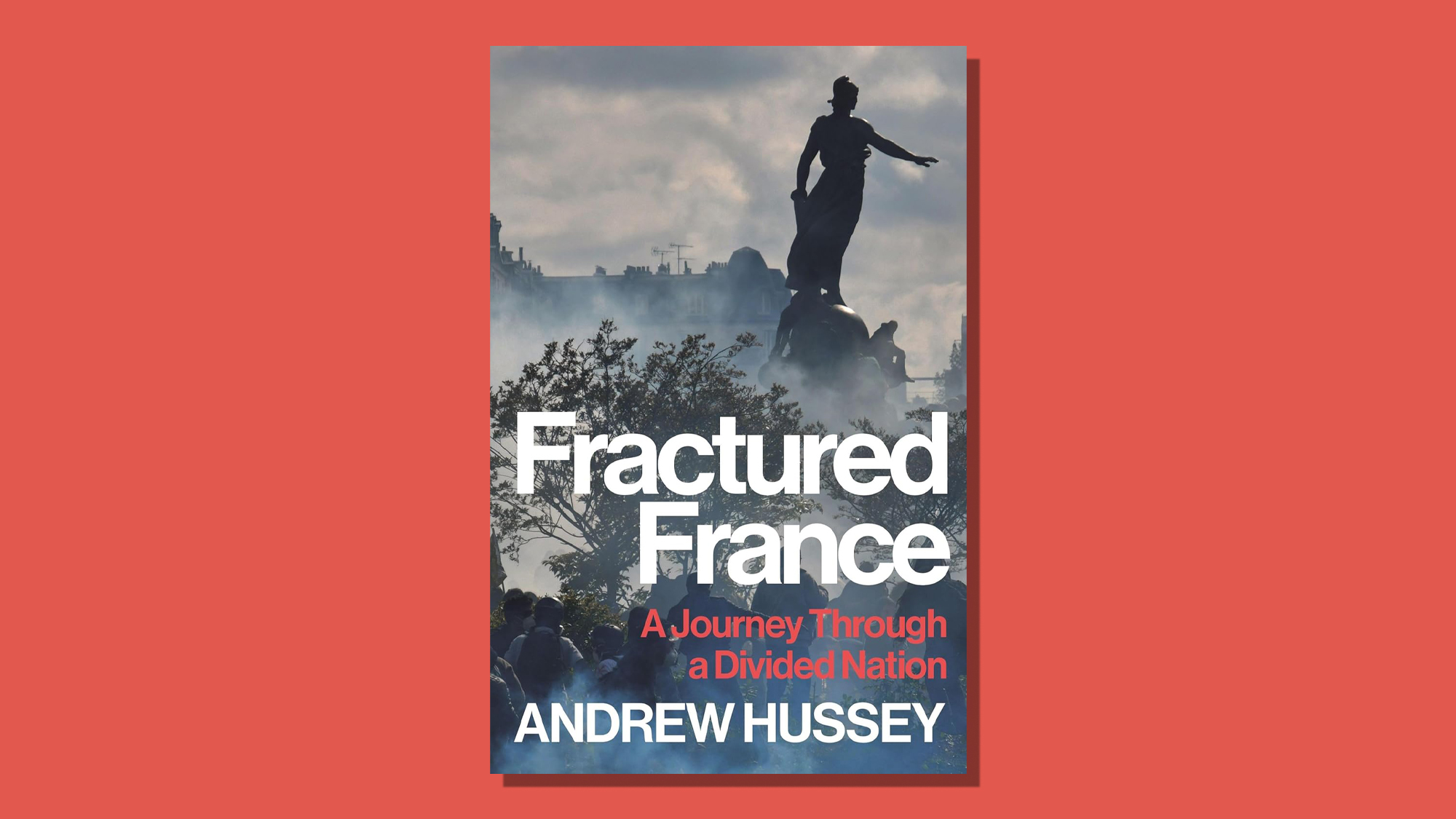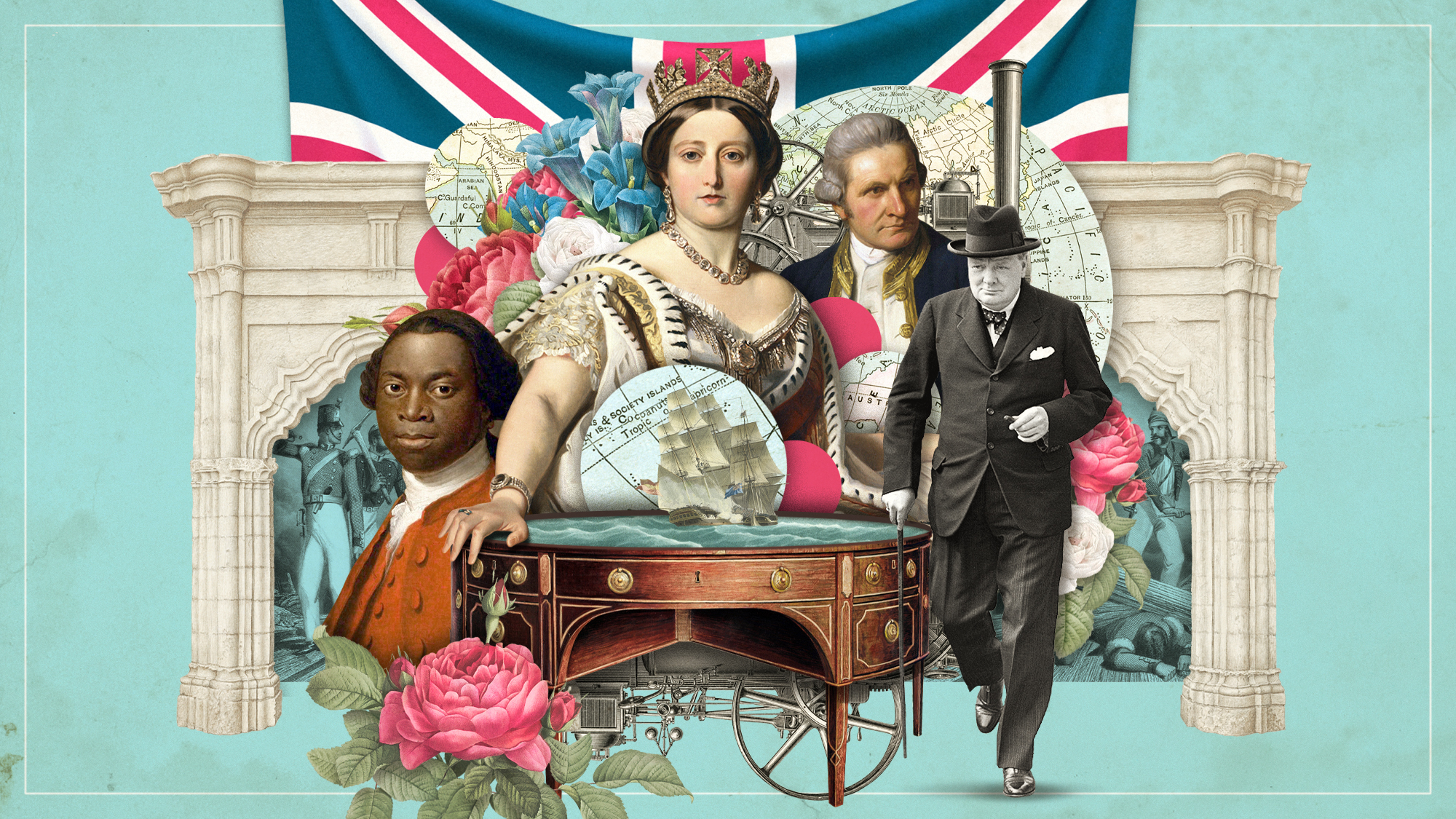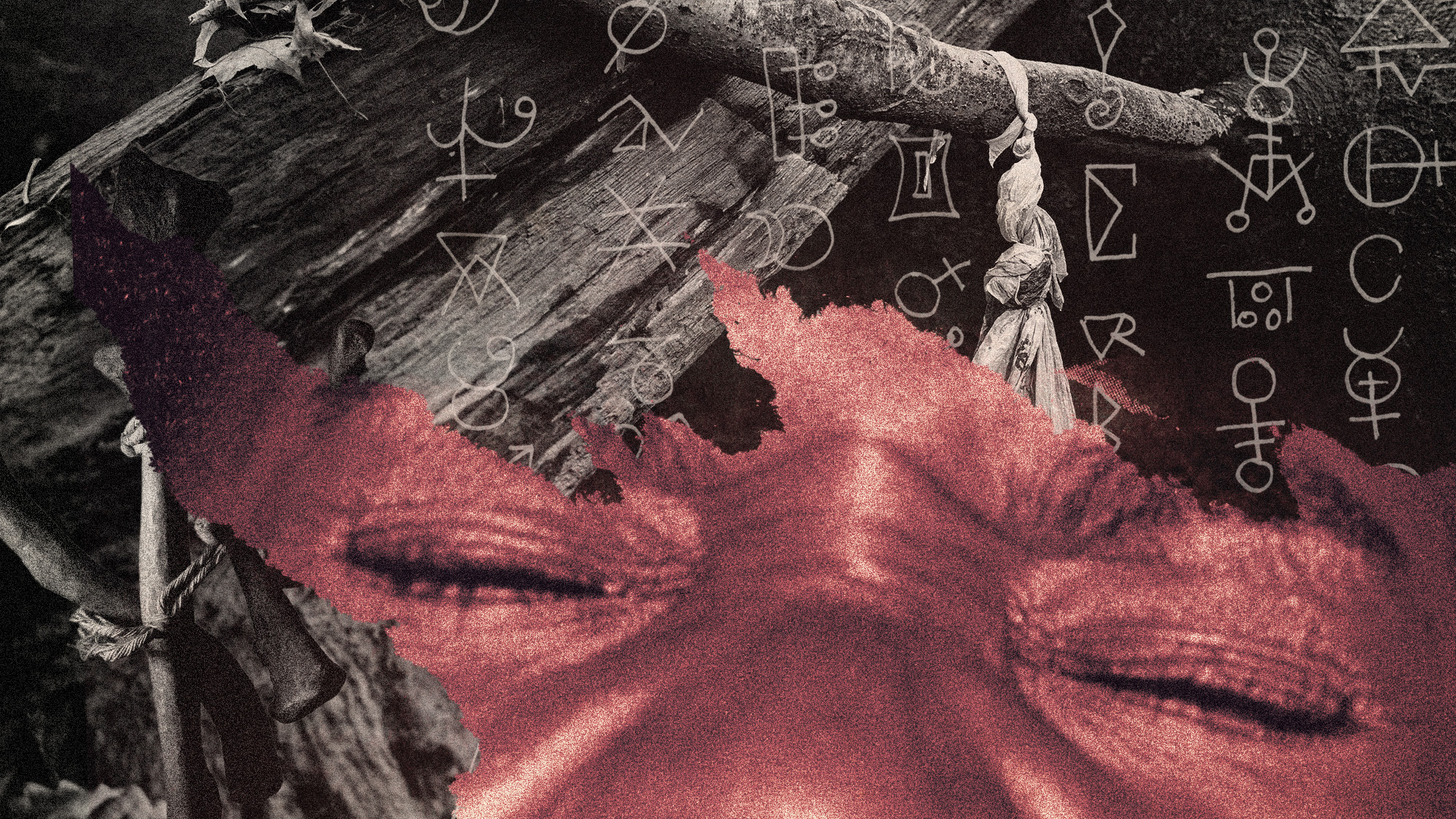The best history books to read in 2025
These fascinating deep-dives are perfect for history buffs

- Baltic: The Future of Europe by Oliver Moody
- Story of a Murder: The Wives, the Mistress, and Dr Crippen by Hallie Rubenhold
- Accidental Tyrant: The Life of Kim Il-sung by Fyodor Tertitskiy
- 1975: The Year the World Forgot by Dylan Jones
- Black in Blues: How a Color Tells the Story of My People by Imani Perry
- Medicine River: a Story of Survival and the Legacy of Indian Boarding Schools by Mary Annette Pember
- Shattered Lands: Five Partitions and the Making of Modern Asia by Sam Dalrymple
- The Fate of the Day: The War for America, Fort Ticonderoga to Charleston, 1777-1780 by Rick Atkinson
A free daily email with the biggest news stories of the day – and the best features from TheWeek.com
You are now subscribed
Your newsletter sign-up was successful
Understanding the past "gives us perspective" on current events, said GQ. "And right now, we sorely need perspective." With "war raging in Europe" and Donald Trump causing chaos across the pond, it's worth spending some time discovering how we got here. These are some of the most insightful history books to add to your reading list.
Baltic: The Future of Europe by Oliver Moody
"Hands up all who know when Tsarist Russia took Finland from Sweden (1809) and when it partitioned Poland (1795)," said Edward Lucas in The Times. If you read Oliver Moody's "timely and insightful" book, you'll find out. The Times' Berlin correspondent describes the centuries-old power struggle for control of the Baltic region, what this means for the future of Europe and, crucially, "what we should do about it". In 1997 Madeleine Albright, then US secretary of state said: "Europe is not safe unless the Baltic region is safe". This is a book which analyses, explains and galvanises, but does not reassure. For too long the West has ignored the lessons the Baltic has to offer. Time to learn.
Story of a Murder: The Wives, the Mistress, and Dr Crippen by Hallie Rubenhold
Many books explore the twisted history of one of Britain's most famous killers, said Kathryn Hughes in The Guardian. But Rubenhold's primary focus is not the doctor himself – who, as it turns out, was more of a self-appointed homeopath. Instead, she puts Cora Crippen "back at the centre of the story", a woman brutally murdered by her husband "for no other reason than a man wanted her out of the way". Rubenhold "has form" when it comes to examining the cliches of historic crime; her last book explored the lives of Jack the Ripper's victims. With "Story of a Murder", Rubenhold works her magic once again, taking a woman repeatedly caricatured as a "silly, slatternly floozy" and producing, through rigorous research, the portrait of a real woman. It's about time someone set the record straight.
The Week
Escape your echo chamber. Get the facts behind the news, plus analysis from multiple perspectives.

Sign up for The Week's Free Newsletters
From our morning news briefing to a weekly Good News Newsletter, get the best of The Week delivered directly to your inbox.
From our morning news briefing to a weekly Good News Newsletter, get the best of The Week delivered directly to your inbox.
Accidental Tyrant: The Life of Kim Il-sung by Fyodor Tertitskiy
Now is a good time to learn more about authoritarian rulers, said Victor Mallet in the Financial Times. And how better to start than with the "ultimate totalitarian leader of the postwar period": North Korea's Kim Il Sung. In this "comprehensive biography", South-Korea based Russian and North-Korean specialist Fyodor Tertitskiy explores how Kim gained power, kept it for himself, and "above all", how world leaders like Stalin and Mao helped him do it. Tertitskiy shies away from caricaturing Kim as a "man of pure evil" but he is certainly the "darkest figure in Korean history". "Given that the rewriting of history and spreading of lies for political ends is of grave concern today", one of the fascinating points of this biography is that it "demonstrates how Kim and his regime became masters of the art," slowly transforming national historical understanding into today's "Orwellian" falsehoods. "Kim Il Sung's pernicious legacy persists, and not just in North Korea."
1975: The Year the World Forgot by Dylan Jones
In 1975, "there was a lot going on in the world and artists were responding to it", said Alan Edwards in London's The Standard. Dylan Jones' book mingles "serious stuff with hefty doses of pop culture"; chapters jump from the Vietnam War to the importance of disco. Jones argues that 1975 is a forgotten year that was also a golden one for music. It is "certainly hard to find 12 months with a more eclectic and long-lasting collection of great songs", attested to by a playlist at the end of the book "for anyone wanting to see what all the fuss was about". Despite his obvious passion for David Bowie, Jones' analysis is wide-ranging. He revels in describing the ingenious way Island Records owner Chris Blackwell seized the contemporary mood to bring Bob Marley's revolutionary message to a wider audience. Likewise, he dives into the feminism and punk of Patti Smith's "bohemian credentials". Jones pulls all these cultural behemoths together "in a way only he can", with an "informative, thoughtful and gossipy" style. "Never has pop history been so elegantly told."
Black in Blues: How a Color Tells the Story of My People by Imani Perry
Even as a child, historian and writer Imani Perry recognised that blue "managed to be simultaneously one and many", said Becca Rothfeld in The Washington Post. Her book, Perry assures us, is not an "exegesis on blue", but an attempt to uncover its mysteries and "its alchemy in the lives of Black folk". In a series of micro-essays she delves into a range of themes from the indigo prized by ancient dignitaries of the Benin to the blue candles burned during Haitian Voudou rituals and the violent racism of the "boys in blue". The breadth of her connections is vast, sometimes "dizzyingly so" and her reasons for such discursiveness aren't "entirely convincing". "But even if blue were a literary device, the book would not be spoiled." It is united by a mood – "just as valuable as an argument" – and a prose style both "musical and moving", which draws the reader through its "tumbling abundance" like a song.
Medicine River: a Story of Survival and the Legacy of Indian Boarding Schools by Mary Annette Pember
From the mid-19th century to the 1930s, thousands of Native American children were forced through hundreds of boarding schools set up by Christian organisations in North America. Their experiences are documented in this "searing" book by Mary Annette Pember, a citizen of the Red Cliff Band of Wisconsin Ojibwe, whose own mother experienced the system, said Kelly Blewett in Book Page. She documents the abuse, rampant in such schools, and also experienced by her mother, including a "tale of a nun whose punishments were so cruel that her fall down a flight of stairs was cause for celebration". "All of this is tremendously personal," but Pember couches this individual story in the wider context of boarding schools as a tool of control in North America and, perhaps most importantly, "how we reckon with their existence today". She discusses the beginnings of Canadian reparations, the revival of cultural practices, and the unwillingness, even now, of Catholic institutions to make available documents which might help families learn what happened to their relatives. This "unforgettable read" shows that the road to recovery is long. But Pember remains "hopeful" that one day North America can get there.
A free daily email with the biggest news stories of the day – and the best features from TheWeek.com
Shattered Lands: Five Partitions and the Making of Modern Asia by Sam Dalrymple
Contemporary accounts of the Indian partition seem to come out "every other year", said Abhrajyoti Chakraborty in The Observer. But Sam Dalrymple (son of historian William Dalrymple) manages to add something fresh by "incorporating the lesser-known tale of Burmese independence into the larger story of British India". His book "shines" when discussing shifting alliances between Indian and Burmese nationalists in the wartime years, following the life of Aung San, a young Burmese activist who escaped arrest in 1940 before returning to the country to lead an anti-British militia. An account of the Raj's western protectorates is also enlivened with a personal strain, this time in the form of accounts from Muhammad Ali Luqman, an Arab journalist in Aden, Yemen. The book tracks his journey from mild multiculturalist to believing South Asian residents should "quit our country". Dalrymple points out that "today most Brits seem convinced that immigration… started with the HMT Empire Windrush docking in London in 1948". His book puts paid to that theory.
The Fate of the Day: The War for America, Fort Ticonderoga to Charleston, 1777-1780 by Rick Atkinson
"The upcoming 250th anniversary of the American Revolution will produce a great deal of jingoistic nonsense parading as history", said Amy S. Greenberg in The New York Times. Thank goodness for Rick Atkinson's "accomplished chronicle" of the middle years of the War of Independence. To restrict this book to the genre of "military history, or even American history, does it a disservice". Of course, he investigates the period's heavy-hitters: Washington's zenith as a commander, Benedict Arnold's defection to the British, and the despair of King George III, who cannot bring this "ruinously expensive conflict" to a close. However, his intimate portraits of lesser-known characters are "just as enjoyable", especially the chronicle of Baroness Frederika Riedesel, the wife of a Hessian commander, who travels to America with three young daughters. All of this creates a history so "compulsively readable" that its length (around 800 pages) is hardly noticeable. "This is great history."
-
 Political cartoons for February 15
Political cartoons for February 15Cartoons Sunday's political cartoons include political ventriloquism, Europe in the middle, and more
-
 The broken water companies failing England and Wales
The broken water companies failing England and WalesExplainer With rising bills, deteriorating river health and a lack of investment, regulators face an uphill battle to stabilise the industry
-
 A thrilling foodie city in northern Japan
A thrilling foodie city in northern JapanThe Week Recommends The food scene here is ‘unspoilt’ and ‘fun’
-
 How historically accurate is House of Guinness?
How historically accurate is House of Guinness?In the Spotlight The glossy Netflix show about the family behind the world-famous stout mixes fact with fiction
-
 Fractured France: an ‘informative and funny’ enquiry
Fractured France: an ‘informative and funny’ enquiryThe Week Recommends Andrew Hussey's work is a blend of ‘memoir, travelogue and personal confession’
-
 The Red Brigades: a 'fascinating insight' into the 'most feared' extremist group of 1970s Italy
The Red Brigades: a 'fascinating insight' into the 'most feared' extremist group of 1970s ItalyThe Week Recommends A 'grimly absorbing' history of the group and their attempts to overthrow the Italian state
-
 Bad Friend: Tiffany Watt Smith explores why women abandon friendships
Bad Friend: Tiffany Watt Smith explores why women abandon friendshipsThe Week Recommends A 'deeply researched' account of female friendship through history
-
 Is British history something to be proud of?
Is British history something to be proud of?Talking Point A sharp fall in the number of people praising our past might not be a bad thing
-
 Centuries after Salem, witch hunts persist
Centuries after Salem, witch hunts persistUnder the Radar Men, women and children around the world are still being persecuted in these hunts
-
 5 cases of children being raised by animals
5 cases of children being raised by animalsThe Explainer True stories of feral children